Transparent Data Practices: Building Trust Through Custom CRM Solutions
In today's digital age, where data privacy concerns are paramount, businesses must prioritize transparent data practices to build and maintain trust with customers. Custom Customer Relationship Management (CRM) solutions play a crucial role in achieving this goal by ensuring open communication, ethical data handling, and robust consent management. This blog explores the significance of transparent data practices in custom CRM solutions and how they foster trust and loyalty among customers.

Transparent data practices refer to the principles and strategies that businesses adopt to openly communicate their data handling policies, processes, and purposes to customers. Key aspects include:
- Open Communication: Providing clear and accessible information to customers about how their data is collected, used, and shared.
- Consent Management: Empowering customers to make informed decisions about data processing activities through explicit consent mechanisms.
- Accountability: Taking responsibility for data handling practices and ensuring compliance with privacy regulations and ethical standards.

Building Trust and Confidence
- Feature: Custom CRM solutions integrate transparency into their design by providing easily understandable privacy policies and data usage explanations.
- Benefit: Enhances customer trust and confidence in the organization's commitment to protecting their privacy and respecting their preferences.
Enhancing Customer Control
- Feature: Custom CRMs offer robust consent management tools that allow customers to manage their preferences regarding data collection and usage.
- Benefit: Empowers customers to exercise control over their personal information, fostering a sense of empowerment and satisfaction.
Compliance with Regulations
- Feature: Custom CRM solutions ensure compliance with data protection regulations such as GDPR, CCPA, and others by implementing transparent data practices.
- Benefit: Avoids legal risks and penalties associated with non-compliance while demonstrating commitment to ethical data handling.
Improving Customer Relationships
- Feature: Transparent data practices enable businesses to communicate openly with customers, addressing concerns and building stronger relationships.
- Benefit: Builds loyalty and long-term relationships based on trust, as customers feel valued and respected in their data privacy rights.

- Clear Privacy Policies: Ensure that privacy policies are written in clear, non-technical language, detailing how customer data is collected, used, and protected.
- Accessible Consent Mechanisms: Implement user-friendly consent management interfaces within the CRM, allowing customers to easily grant, withdraw, or modify their consent preferences.
- Educational Resources: Provide educational materials and FAQs about data privacy and security practices to inform customers and promote transparency.
- Data Audit and Accountability: Conduct regular audits of data handling practices to ensure alignment with privacy policies and regulatory requirements. Maintain accountability by documenting data processing activities and responses to customer inquiries.
Conclusion
Transparent data practices are essential for businesses using custom CRM solutions to build trust and loyalty among customers. By prioritizing open communication, robust consent management, and compliance with data protection regulations, businesses can demonstrate their commitment to ethical data handling. Transparent data practices not only mitigate risks associated with data breaches and regulatory fines but also strengthen customer relationships based on mutual respect and understanding.
Investing in a custom CRM solution that embraces transparent data practices is a strategic decision that pays dividends in customer trust, loyalty, and brand reputation. As customers become more aware of their data privacy rights, businesses that prioritize transparency will stand out as trustworthy partners in the digital economy. By fostering a culture of transparency and accountability, custom CRM solutions become powerful tools for enhancing customer satisfaction and organizational integrity.

























